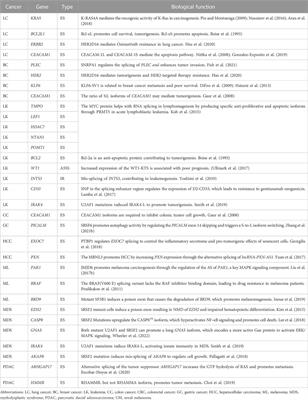MINI REVIEW
Published on 10 Aug 2023
Targeting alternative splicing in cancer immunotherapy

doi 10.3389/fcell.2023.1232146
- 3,417 views
- 8 citations
1,024
Total downloads
4,031
Total views and downloads
You will be redirected to our submission process.
